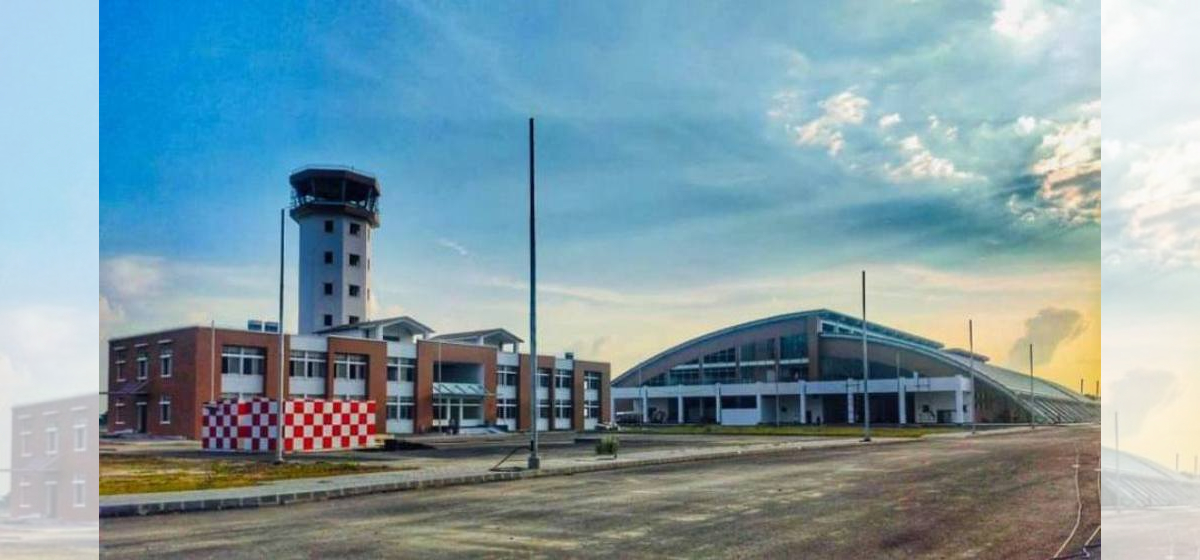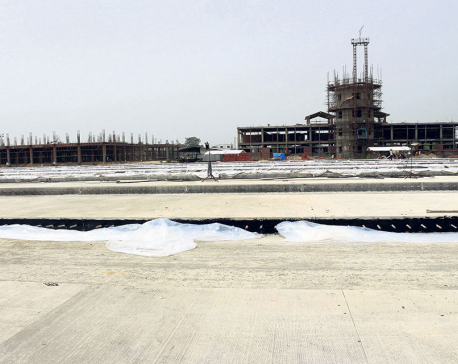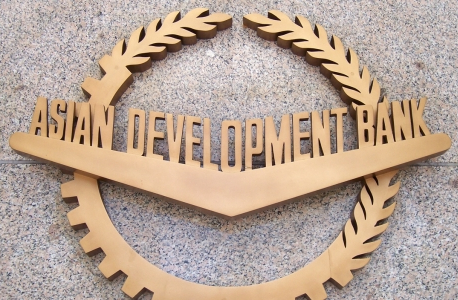
OR
Is the India-China rivalry impeding GBIA's full-fledged operation?
Published On: November 29, 2023 02:45 PM NPT By: Sajira Shrestha

Government officials deny allegations, while experts and stakeholders attribute New Delhi's hesitance to grant a new air entry route as the reason behind GBIA's failure to attract int'l airlines.
KATHMANDU, Nov 28: It has been around one and a half years since the much-hyped Gautam Buddha International Airport (GBIA) came into operation. The airport, widely seen as an alternative to Nepal’s only Tribhuvan International Airport, was expected to ease the ever increasing air traffic congestion. However, the airport receives no international flights despite the government’s efforts to attract them, raising serious questions about its commercial viability and functionality of the airport as an alternative to the TIA.
As part of the South Asia Tourism Infrastructure Development Project, Asian Development Bank (ADB) supported the Government of Nepal in upgrading and building the GBIA. The total cost of the airport construction was US$76.1 million. Of this, ADB’s contribution was about US$37 million in loans and grants, while the OPEC Fund for International Development contributed about US$11 million in loans. The remaining amount was injected by the government.
Similarly, approximately Rs 80 billion has been provided by the private sector for the development of five-star hotels and other infrastructure near the airport. Tourism entrepreneurs, who have invested billions of rupees in hospitality infrastructures in the hope that the airport would come into full-fledged operation, are now expressing concern over the possibility of significant losses due to the absence of regular international flights.
A popular narrative in Nepal behind the failure of the GBIA to operate fully is India’s refusal to provide a new air entry route to facilitate landing and take off of large airplanes. The primary reason behind the refusal is said to be the involvement of a Chinese contractor – Northwest Civil Aviation Airport– and its proximity to the Nepal-India border. Archrivals India and China, with a long history of animosity, do not enjoy cordial relations following repeated skirmishes along the border in recent years.
However, Birendra Bahadur Deuja, the former director-general of the Civil Aviation Authority of Nepal (CAAN), argues that the claim that the dispute between India and China is impacting the operation of GBIA is merely political rhetoric.
"People who claim that the India-China feud is the primary reason for the GBIA's inadequate operation are engaging in unnecessary political discourse," he said. "GBIA is a new international airport, and like any new facility, it requires proper marketing and time for that marketing to take effect."
Officials say only a few airlines have expressed interest to operate flights from GBIA mainly due to high operating costs and the reluctance of the Indian government to open air routes via the Indian land in the proximity of the GBIA. Jazeera Airlines that operated direct flights from Lumbini to Kuwait some time ago has also suspended its flights, while state-owned Nepal Airlines Corporation (NAC) has also struggled to operate regular flights.
However, Sagar Adhikari, former president of Nepal Association of Tour & Travel Agents (NATTA), Lumbini chapter, said that the problem being shown with India is baseless while it is the government's fault that the airport is not able to function in full capacity. “The airport is built on the investment of ADB and India too has many investments done by ADB,” he argues. “Before investing billions of rupees, international financial institutions such as ADB obviously take advice from India, which holds concern when the airport is being built near the border area.”
While the experts and stakeholders blame government’s laxity behind this, senior government officials privately share that India’s refusal to provide a new air entry route is the key reason behind this. Officials at the Ministry of Culture, Tourism and Civil Aviation (MoCTCA), also said that Nepal is yet to receive permission to operate the Instrument Landing System (ILS) at GBIA.
A senior MoCTCA official, who did not want to be named, claimed that it is evident geopolitical concern is at play in case of GBIA. He mentioned that the airport’s case is similar to how India has announced not to purchase electricity generated from Nepal if a hydro project in Nepal involves any Chinese component.
While GBIA is the first airport in Nepal with an Instrument Landing System (ILS), it has still not come into operation as an agreement related to the common use of airspace between Nepal and India is still under consideration. The ILS is an advanced radio navigation system that offers instrumental guidance to aircraft during nighttime or adverse weather conditions, facilitating their approach to the runway. With the implementation of this system, aircraft can land with a visibility of approximately 500 meters.
Dr Surya Raj Acharya, an expert in infrastructure policy, planning, and management, argued that it is natural that security concerns arise whether it's a road or an airport that are built in proximity to a border. "However, it is unfortunate that India views our major infrastructure projects through the lens of security and geopolitics,” he said.
Dr Acharya added, "If neighboring countries perceive our development projects as security threats, it could hinder our progress. Our government should undertake efforts to reassure neighboring countries that these projects pose no harm while also assessing the legitimacy of their concerns."
Experts argue that if India is hindering the operation of GBIA citing security reasons, particularly if the project was built by Chinese companies, such a justification is both illegitimate and baseless. "For a rising global power, delaying to provide air routes to both Bhairahawa and Pokhara airports is a regrettable act,” added Acharya
However, General Manager of GBIA Hansha Raj Pandey said that while ILS is a very technical subject, the way information has flowed regarding it to the public is very concerning. “Since the operation of the airport on May 16, 2022, no airline company has ever complained about not being able to fly properly due to lack of a new air route or ILS system,” he said.
Pandey argued that it is important to ensure the safety of the areas it covers in both Nepal and India for aircraft operations for the effective implementation of the ILS system. “While we can ensure the safety of our own land, we cannot establish rules for another country," he explained.
Pandey further said that people have associated this with various political aspects. “However, it is purely a technical matter and nothing more. We are presently working to ensure that no man-made structures exist in the area where the ILS system is needed, and India is also supportive of this endeavor as well,” he added.
You May Like This

Demand for regular international flights at GBIA
KATHMANDU, Jan 1: On the occasion of National Topi Day, Nepal Association of Travel and Tour Agents (NATTA) Lumbini Province... Read More...

Prez Bhandari stresses on early completion of GBIA
BUTWAL, Dec 9: President Bidhya Devi Bhandari has stressed on the completion of Gautam Buddha International Airport (GBIA) as soon... Read More...

ADB, IMF project economic rebound
KATHMANDU, March 28: The Asian Development Bank (ADB) has projected that the country's economic growth will be between 5.2 to... Read More...










Just In
- NRB introduces cautiously flexible measures to address ongoing slowdown in various economic sectors
- Forced Covid-19 cremations: is it too late for redemption?
- NRB to provide collateral-free loans to foreign employment seekers
- NEB to publish Grade 12 results next week
- Body handover begins; Relatives remain dissatisfied with insurance, compensation amount
- NC defers its plan to join Koshi govt
- NRB to review microfinance loan interest rate
- 134 dead in floods and landslides since onset of monsoon this year








Leave A Comment